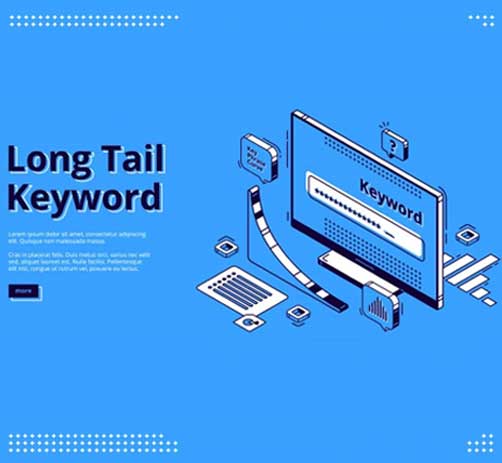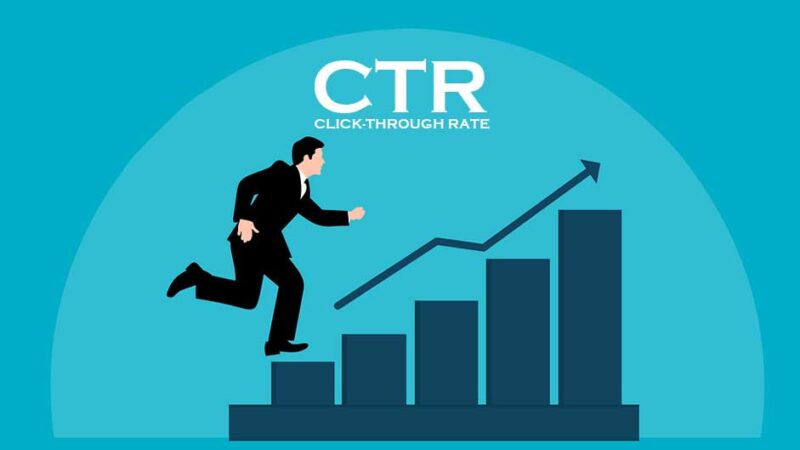Strategies for Startup Marketing: Securing Victory in 2024

When it comes to Startup Marketing, there are numerous avenues to explore. However, it’s not necessary to adopt all the tips at once. Unless there is a substantial SEO budget at your disposal, the focus should be on a select few strategies rather than attempting to do everything. It’s noteworthy that eighty percent of your results will stem from just twenty percent of your efforts. Therefore, identifying and concentrating on the SEO strategies that contribute to that crucial 20% is essential.
When assessing and reviewing the following startup SEO best practices, it’s important not to feel overwhelmed. The best approach is to select a specific area to focus on, test it, measure the results, and make adjustments as necessary.
SEO Guidance for Startups: 25 Essential Tips for Those with Limited Time and Budget
Embarking on an SEO Strategy: A Must for Startups
In the realm of startup marketing, an initial assessment of your current position and future goals is essential. A roadmap to reach those goals, filled with achievable tasks, should be devised. Reflect on the significance of SEO for your business. Understanding the role your website plays in your success will provide a clear starting point.
Startups often find themselves engrossed in product development, with marketing strategies being an afterthought. However, incorporating a well-thought-out strategy from the project’s inception is of paramount importance.
Establishing Your SEO Objectives
SEO can play a pivotal role in realizing your business aspirations. The purpose of SEO extends beyond merely attracting search engine traffic to your website.
Indeed, an SEO strategy that may initially seem to attract less traffic could, depending on your business objectives, bring the right kind of traffic and prove to be more advantageous in the long term.
SEO can aid in the achievement of various business objectives:
- Enhanced profit, revenue, or return on investment (the most evident long-term objectives).
- Increased brand awareness.
- A steady and expanding pool of targeted leads.
- Ensuring the company’s longevity.
- Ensuring the company’s longevity.
Before progressing further, it is crucial to have well-defined SEO business goals.
Setting Aside a Budget for SEO
The significance of budget allocation for SEO is often overlooked by many startups. To optimize the effectiveness of your SEO strategy, it is recommended to establish a budget for it right from the outset.
What is the typical SEO expenditure for companies?
Most respondents indicated that it varies from $500 to $5,000 per month. Naturally, not all companies can afford to invest $5,000 in SEO each month. Therefore, it is advisable to plan your budget for SEO activities accordingly.
Prioritizing the Reduction of Website Load Speeds
It is imperative for all startups to ensure a swift loading time for their websites. Regardless of the quality of your content, the attractiveness of your theme, or the extent of your promotional efforts, a prolonged load time can result in the loss of potential clients.
Employing a Solid-State Hosting server, utilizing Content Delivery Network plugins, and choosing a theme optimized for quick loading can help serve your visitors faster than your competitors’ sites. It is also recommended to compress all images to under 100 KB.

Ensure Your Website’s Compatibility with Mobile Devices
With mobile devices being responsible for over half of the global traffic, it is inferred that your website’s responsiveness to smartphones and tablets is essential to satisfy both Google and your potential clientele.
Here are the crucial aspects to focus on for mobile optimization:
- Prioritize enhancing the loading speed of your website.
- Accelerate the process by minifying your code and optimizing your images.
- Employ an emulator to examine how your content appears on various devices.
- Determine whether your website is responsive or adaptive.
- Verify that all images are compatible with mobile devices.
Remember, a mobile-optimized website not only improves user experience but also contributes to SEO performance.
Conduct Competitive Analysis
The importance of competitive analysis in startup marketing cannot be overstated. Identifying competitors in your industry and analyzing their SEO strategies is crucial. Discover the terms and tactics that have proven successful for them. This approach eliminates guesswork and verification, saving valuable time. Observing your competitors’ rankings and the queries they’re addressing can provide valuable insights into the keywords to incorporate into your content strategy.
Competitive analysis is a powerful method to capitalize on the opportunities your competitors may have missed.

Make use of complimentary resources like Ubersuggest and Alexa. A unique feature of Alexa is its ability to identify your competitors. Remember, a well-researched SEO strategy not only improves visibility but also contributes to your business growth.
Executive Keyword Analysis
Initiating your blog with long-tail keywords can be highly beneficial. Owing to their extensive nature, long-tail keywords tend to be more descriptive than searches with fewer words. Tools like Ubersuggest and Google Ads Keyword Planner are excellent for generating comprehensive keyword lists and kick-starting your PPC campaign.
Long-tail keywords are known for their high conversion rates. As per a recent study by Word Stream, the top 10% of landing pages have a conversion rate of 11.45%.

Remarkably, long-tail keywords boast an average conversion rate of 36%. Remember, a well-executed keyword analysis not only improves visibility but also contributes to higher conversion rates.
Purchase Intent Keywords
These are the search phrases that individuals typically use when they are on the verge of making a purchase. It can be inferred that individuals searching for Purchase-Intent Keywords might already have their credit cards at the ready.
Here are some terms that commonly feature in Purchase-Intent Keywords:
Buy Now Keywords
These are the search terms that individuals employ just before they make a purchase. People who are looking for Buy Now Keywords may be holding their credit cards in their hands.
Here are some words that frequently appear in Buy Now Keywords:
- Buy
- Coupon
- Discount
- Shipping
- Deal
Some examples of Buy Now Keywords are GoDaddy discount, buy shoes online, custom t-shirts shipping, etc.
Product Specific Keywords
Searches pertaining to a particular product category, brand name, or service are referred to as Product-Specific Keywords. It is inferred that individuals who search for Product-Specific Keywords are likely to be further along in the purchasing process compared to those searching for Purchase-Intent Keywords.
In essence, they exhibit a decent conversion rate, albeit not as high as Purchase-Intent Keywords. Remember, a well-strategized keyword usage not only improves visibility but also contributes to higher conversion rates.
Product keywords are typically composed of words and phrases such as:
- Review
- Best
- Top 10
- Specific brand name (Puma, Polo etc)
- Specific product (iPhone, Nokia etc)
- Affordable
- Cheap
Some examples of Product Keywords are cheap laptops, top 10 mobile games etc.
Information Keywords
As one might anticipate, Information Keywords, which constitute the majority of keywords utilized on the internet, are typically used by individuals seeking information. However, these keywords do not typically yield high conversion rates.
Information keywords commonly include the following terms:
- How to
- Best way to
- Tips
- Strategies
- I need to
Some of the examples of Information Keywords are Tips to promote your website, How to take screenshots on a laptop, Best way to learn Python, etc.
Tire Kicker Keywords
Termed as Tire Kicker Keywords, these searches are highly unlikely to result in conversions in the near future. Remember, a well-strategized keyword usage not only improves visibility but also contributes to higher conversion rates.
Here are a few words that frequently appear in Tire Kicker Keywords:
- Free
- Download
- Torrent
Tire Kicker Keywords commonly used the terms like Free movies online, Download music player etc.
Focus on Niche Keywords
In the realm of startup marketing, it’s highly probable that your product or service is designed to cater to a specific, niche demand. Identify how this demand translates into keywords and long-tail phrases, and then formulate your SEO strategy accordingly.
Identify your target market’s niche audience and devise a content marketing strategy to furnish them with the information they’re seeking. Ensure that the published content surpasses what is currently available in the market.

Subsequently, promote it to the audience to the greatest extent possible. Remember, a well-strategized keyword usage not only improves visibility but also contributes to higher conversion rates.
Utilize Complimentary SEO Tools
- Google Analytics – Provided by Google, Google Analytics is a web analytics tool that tracks and reports website traffic. It is also accessible as a platform under the Google Marketing Platform brand.
- Google Search Console – Google Search Console is a web service that enables webmasters to check the indexing status of their websites and improve their visibility.
- Rank Math Plugin – Rank Math is a WordPress plugin that aids in optimizing your website’s content. It simplifies the process of adding meta titles, descriptions, and structuring your data. To utilize this plugin, it needs to be downloaded and installed on your WordPress website.
- Google Trends – Google Trends is a tool that enables you to monitor the popularity of topics and trends in your industry over time. This tool can be used to identify current trends and utilize that data to formulate a timely and relevant content marketing strategy.
- Bing Webmaster Tools – Bing Webmaster offers a comprehensive suite of analytics to help you analyze your website and search analytics. A free Bing Webmaster Tools account can be created, your website added, and ownership verified. Following that, you can create or upload your sitemaps. Subsequently, you can start optimizing your site and its content using Bing Webmaster Tools’ features and suggestions. Remember, a well-utilized SEO tool not only improves visibility but also contributes to higher conversion rates.
Focus on Creating Premium Content
Emphasize crafting articles that are unique, high-quality, intelligent, and well-researched. Begin creating content with the audience in mind, not search engines. Prioritize quality over quantity. It’s more beneficial to publish one well-researched, high-quality blog post biweekly than to churn out two low-quality, low-value blog posts weekly. Remember, high-quality content not only improves visibility but also contributes to higher user engagement rates.
Develop Content That Backs Your Product
Focus on crafting canonical content that centers around the keywords your customers would employ to locate your product.
Canonical content is essentially information that educates potential customers on how your product can be leveraged to address their issues. It typically comprises a series of posts that progressively build upon each other. Your content can serve multiple functions, including prospecting, deal closures, customer service, and much more. Remember, well-crafted content not only improves visibility but also contributes to higher user engagement rates.
Educate your audience about your product
If you’re a startup introducing a new product or technology, it’s essential to educate the market. Don’t assume that people will instinctively know what to search for to find you. Maintain your focus on TOFU (top of the funnel), MOFU (middle of the funnel), and BOFU (bottom of the funnel) to ensure the acquisition, nurturing, and education of potential leads.
Startups need to master the art of defining their products in straightforward terms and aligning them with keywords and searches that the average person would use to locate them. Remember, well-informed customers not only improve visibility but also contribute to higher user engagement rates.
Establish a Content Library
Perceive your content as a library rather than a publication. Create evergreen content that is beneficial to your users and complements your products or services. While topical content has its merits, companies should shift their focus from publishing to constructing a library of evergreen materials that yield organic traffic over time.
Content creation should not be pursued merely for the sake of content marketing.

It’s essential to generate content that caters to the needs of the audience. Remember, well-crafted content not only improves visibility but also contributes to higher user engagement rates.
Begin Establishing Your Authority Through Backlinks
Place a greater emphasis on backlinks. There’s little point in striving to enhance your ranking without the requisite authority.
Backlinks can be acquired in numerous ways. However, as a startup, your focus should be on leveraging your expertise in guest articles and capitalizing on opportunities such as fundraising and product update announcements in press releases on news sites.
As you strive to boost your domain authority, content marketing can be of immense assistance. It aids in maintaining the order of your site’s primary pages while also offering new opportunities to create appealing content for your target audience. This not only serves as a valuable source of new backlinks but also assists in ranking for a broader range of keywords. Remember, well-strategized backlink usage not only improves visibility but also contributes to higher domain authority.
Prioritize Acquiring Backlinks From Prime Sources
Startups should place a high priority on obtaining backlinks from esteemed industry directories such as Crunchbase, Startup Tracker, Gust, and BetaList.
Leveraging press and news coverage is an excellent strategy to build quality backlinks, capitalizing on the buzz generated by a new product. Other viable options include conducting interviews on blogs and submitting your site to various product directories like Product Hunt.

Quality backlinks will enhance your domain authority and aid any content you create in achieving higher rankings on Google. Apart from the SEO advantage, which may take some time to manifest, they can also serve as a robust source of referral traffic. Remember, well-strategized backlink usage not only improves visibility but also contributes to higher domain authority.
Collaborate With Peer Companies
Forge connections with like-minded companies. Craft insightful, informative articles that complementary websites will publish, in addition to articles that will be featured on industry sites and their social media profiles.
Enhance your domain authority by partnering with other organizations to generate and promote pertinent content. This strategy not only boosts traffic but also fosters relationships within your industry. Remember, well-strategized collaborations not only improve visibility but also contribute to higher domain authority.
Aim For A Global Audience
Any startup investing resources in crafting an efficient organic traffic mechanism must adopt a global perspective. It’s essential for every startup to allocate time to translate content into languages spoken by potential customers, apart from English. Establishing a multi-language website from the outset significantly contributes to the long-term traffic growth from any country where your potential customers might reside, and facilitates the acquisition of backlinks from local websites.

In terms of keyword targeting, content published in languages other than English typically encounters considerably less competition, enabling easier traffic generation for a specific target topic. Remember, a well-strategized global approach not only improves visibility but also contributes to higher user engagement rates.
Promote & Welcome Comments
Promoting and welcoming comments on all blog posts is encouraged due to its significant SEO potential. Engaging with commenters is a crucial element of leveraging blog comments for SEO.
Participating in discussions on other individuals’ posts is recommended as it presents an excellent opportunity to acquire complimentary backlinks. Remember, active engagement not only improves visibility but also contributes to higher user interaction rates.
Establish Your Social Presence
Social networking platforms serve as the primary catalyst for most startup entrepreneurs to gain traction and cultivate an online audience. Having a presence on Facebook, Instagram, and LinkedIn is crucial as these platforms are the source of the majority of the audience. Moreover, your social media account provides a convenient avenue to promote your website. Remember, a well-established social presence not only improves visibility but also contributes to higher user engagement rates.
Promote User Generated Content
In order to attract traffic, it’s essential to align with those who already have substantial traffic. As per Alexa rankings, some of the most frequented websites globally include Google.com, YouTube.com, Facebook.com, Wikipedia.org, Yahoo.com, Reddit.com, among others.
Facebook, YouTube, and Reddit are examples of social media platforms that predominantly feature user-generated content. Yahoo! functions as an Internet portal, while Wikipedia serves as a public encyclopedia.

As reported by Social Media Week, 47% of advertisers incorporate user-generated content on their websites. Remember, promoting user-generated content not only improves visibility but also contributes to higher user engagement rates.
Produce Infographics & Videos
Infographics and videos serve as clear and aesthetically pleasing mediums to convey your message, while also sustaining your readers’ interest. Infographics have the ability to render complex subjects enjoyable and comprehensible.
- An infographic is equivalent to 1000 words
- A video is tantamount to 10,000 words.
Remember, well-crafted infographics and videos not only improve visibility but also contribute to higher user engagement rates.
Monitor Your Competitors
Utilizing tools like SimilarWeb and Ubersuggest, the sources of your competitors’ backlinks can be identified.
SimilarWeb and Ubersuggest offer insights into competitors’ website traffic volumes, referral sources including keyword research and demographics, and website “stickiness,” among other features. Both tools serve as comprehensive website analytics and strategic traffic intelligence resources. Remember, well-strategized competitor monitoring not only improves visibility but also contributes to higher user engagement rates.
Use your site’s analytics strategically
Maintaining a close watch on analytics is crucial. By delving into the intricate details, a comprehensive understanding of your website visitors’ behavior can be achieved. Establish a spreadsheet to monitor changes over time, enabling site optimization based on user patterns.
Optimization for your new target market is essential. It’s critical to discern what’s effective and what’s not. Remember, strategic utilization of site analytics not only improves visibility but also contributes to higher user engagement rates.
Stay Updated on SEO news, trends & Google updates
Here are some websites I recommend following and subscribing to:
Final thoughts
SEO poses a challenge, and the challenge intensifies for startups with limited resources that lack a targeted approach to their search marketing strategy. Remember, a well-strategized SEO approach not only improves visibility but also contributes to higher user engagement rates.
The key insights for any startup venturing into SEO are as follows:
- Focus on achieving small, manageable wins.
- Refrain from investing in low-cost services.
- Recognize that larger competitor sites possess more power, and competition with them is feasible only after establishing your own authority.
- Rather than merely showcasing your products, deliver content that resonates with your audience.
- Ensure that all aspects are linked back to measurement, analytics, and conversions.
- Reports should be presented in a manner that is engaging and comprehensible to C-level executives. Remember, a well-strategized SEO approach not only improves visibility but also contributes to higher user engagement rates.
Frequently Asked Questions About SEO for Startups
- Does SEO typically take at least 6 months to yield results?
The answer is conditional. However, it’s generally accepted that results from SEO efforts are usually observed within a span of 6-12 months. - Is social media a ranking factor in SEO?
Not directly. However, promoting your content on social media is advisable as content distribution is a key factor in enhancing interaction with your content. - What is the optimal approach to develop links for my startup?
Identify the connections your CEO or investors have and strive to establish relationships with them. Avoid spending time sending thousands of cold emails in the hopes of securing backlinks. - Is SEO overly competitive for startups?
In the current digital marketing landscape, every aspect is competitive. Don’t let that deter you. Whether it’s Google Ads, content creation, launching a product on Product Hunt, or creating a podcast, there’s something for everyone. The longer you wait, the more detrimental it is. So, start building your foundations today. - Is SEO too costly for startups?
Not necessarily. Expensive software and high-priced consultants are not essential. In essence, if you invest time and effort into your SEO endeavors, you’ll witness incremental results with substantial payoffs. - Should I concentrate my efforts on writing blog posts or landing pages?
Both are required. Certain queries will not rank with landing pages, while others will not rank with blog posts. - Should I focus on the keywords with the highest search volume?
Not always! The reason being, the most challenging keywords are those with the highest search traffic. In other words, they’re extremely competitive. As a startup, your website is likely younger, which means it lacks the authority required to compete against more established - Is the domain authority of my website significant for SEO?
Unfortunately, yes. If your domain authority is high, your site will find it easier to rank for competitive search terms and topics. However, even with a low domain authority, if you focus on long-tail keywords, you can still rank for good keywords. - What are some of the most common issues that could negatively impact my search engine rankings?
- Poor user experience
- Low quality content and links
- Failure to serve the searchers’ objective
- Lack of understanding of your target audience’s problems
- Slow page speed
- Poor and outdated content strategy
- Keyword cannibalization
Remember, addressing these issues not only improves visibility but also contributes to higher user engagement rates.






